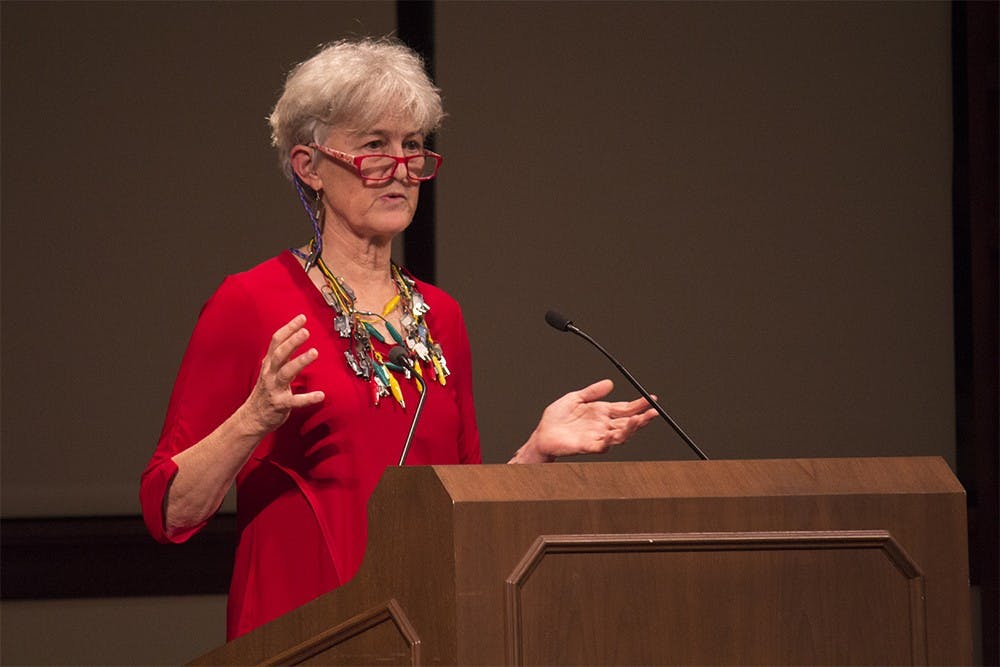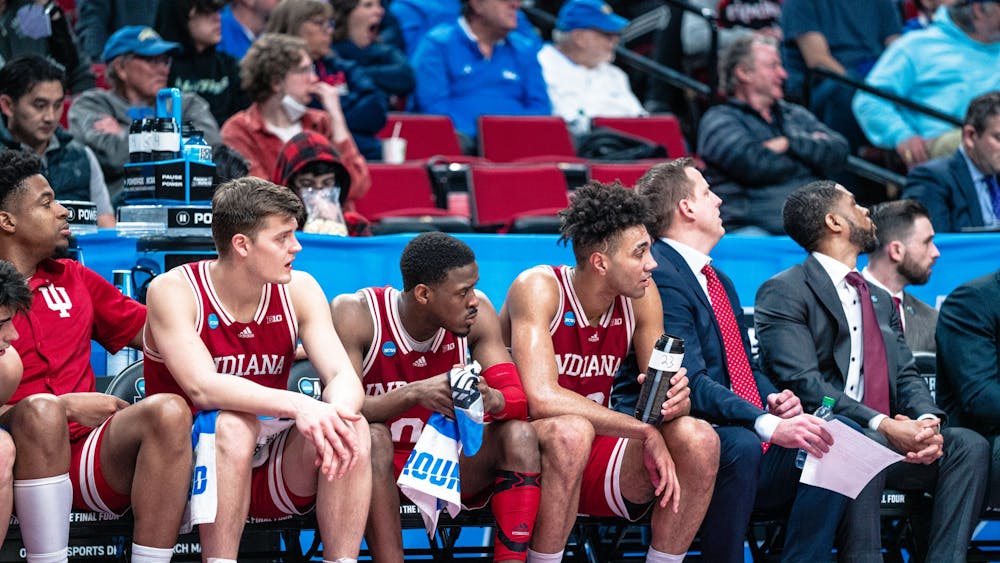Although creatures such as vampires and zombies may be the stuff of fantasy, one social scientist says they are a reflection of the real life monsters that exist in society today.
Nancy Folbre, professor emerita of economics at the University of Massachusetts Amherst, spoke Tuesday in Franklin Hall about the emotional consequences of income inequality during “Monsters of the Economic: Inequality, Fear and Loathing in America.”
“The serious problem isn’t so much that Americans don’t care about inequality — it’s that they just don’t see what we can do about it,” Folbre said.
Folbre’s lecture was part of the Patten Lecture Series.
Folbre also serves as the new director of the Political Economy Research Institute’s Program on Gender and Care Work at UMass Amherst.
A distinguished social scientist, Folbre researches the intersections of political economy and feminist theory specifically in regard to care and other forms of non-market work.
To help audience members better understand the severity of the situation, Folbre provided recent statistics produced by Oxfam regarding the severity of income inequality on a global scale.
“The 80 richest people in the world own the same amount of wealth as the 3.5 billion poorest people in the world,” Folbre said.
Folbre also addressed the existence of inequality in the United States specifically, the extent of which Folbre said many Americans are unaware.
“In 2014, Wall Street bonuses — this is over and above an average salary of about $150,000 — were double the earnings of all of the full-time minimum wage workers in the country,” Folbre said.
Folbre said such a stark inequality in the distribution of wealth is frightening because it indicates a corruption of democracy and a disproportionate ownership and control of media.
“I think there are some big cultural tensions between just generic distrust of the powerful and disrespect for the needy, and I think that’s what is revealed by popular culture,” Folbre said.
Folbre said societal division is what makes public discourse surrounding income inequality so complicated.
“To be a member of a species that is actually pretty collaborative and cooperates on a lot of things but is also very competitive and which tends to divide itself into groups that demonize one another in ways that are pretty destructive and pretty disturbing,” she said.
Folbre said examining these issues encourages people to step back and consider what it means to be human.
Indermohan Virk, the executive director of the Patten Lecture Series, helped organize the event.
Virk said Patten lecturers are selected on the basis of their national and international reputations, the contribution of their work within their own disciplines, and the effectiveness of their ability to speak to a general audience.
The other two Patten lecturers for 2015-16 academic year will be James Scott, the Sterling professor of political science at Yale University, and Jill Lepore, the David Woods Kemper ‘41 professor of American history at Harvard University.
Both lectures will be visiting in March 2016.
“It is always exciting to bring to our campus such reputable scholars, novelists and artists. They spend a whole week on campus, meeting faculty, staff, and students,” Virk said. “I hope that students will take advantage of the opportunity to hear first hand from distinguished people who are doing very exciting work.”






